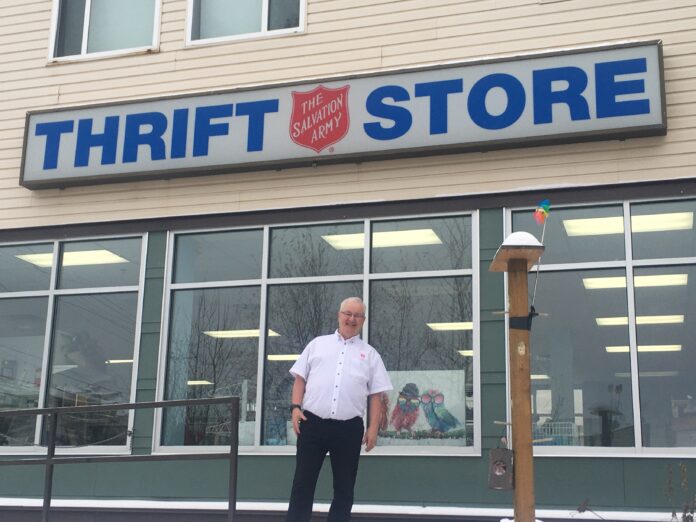The 2024–25 GNWT budget address held no surprises for Major Tony Brushett of the Salvation Army. Headlined by a glaring absence of housing funding, which Brushett believes is a profound disappointment.
Brushett had hoped to see a more substantial allocation of funds for housing. The budget did include a small section that the Salvation Army viewed positively, particularly the second-stage housing for individuals exiting recovery in Alberta. The Salvation Army, a steadfast advocate for a second stage of housing, aims to prevent individuals from returning to their previous environments, where they might face the same challenges and return to using. It was announced that funds have been allocated for such a facility in Yellowknife, in partnership with the Salvation Army.
Brushett says they still have to finalize the details. Its current facility can accommodate five or six individuals at a time for 30 to 90 days. The objective is to help people reintegrate into the community and reunite with their families, ideally facilitating their return to the workforce. Rather than immediately placing them in a shelter where they might relapse into drug or alcohol use, “We aim to provide them with a fighting chance for recovery.”
The budget, unfortunately, lacked provisions for a significant increase in affordable housing, particularly for those in the transitional housing system. There’s a pressing need for more locations to accommodate these individuals. Transitional housing, designed as a two-year solution, is often extended due to the lack of available options. This issue, particularly the reluctance of landlords to accept tenants associated with the Salvation Army, is a significant concern for Brushett and a clear area where the budget fell short.
Yellowknife urgently requires a 24/7 shelter, says Brushett. The need for it is not yet receiving enough attention, so they are quietly working on it right now. Brushett says if the right people don’t listen, they have a couple of reports and a couple of studies they will probably release to the media. For now, they will allow the territorial politicians to at least address their report.
The Salvation Army runs a night shelter in the Yellowknife community, and the GNWT runs a day shelter. However, this isn’t the ideal approach to addressing homelessness, says Brushett. What’s needed is a shelter open 24 hours a day, providing continuous access to support and counsellors who can engage with and assist the homeless population.
The Salvation Army’s shelter closes at 7 a.m. each day, which unfortunately means returning individuals to the streets. Brushett says we understand change will take time, yet the GNWT plans a new downtown shelter within the next two to three years. Hopefully, they will consult with NGOs to understand their long-term needs, says Brushett.
Brushett says they have scheduled meetings with some MLAs in the upcoming weeks and are actively working to resolve their issues with the budget. Two night ago, Brushett’s shelter occupancy was 160 per cent. The government may not recognize a problem as long as the Salvation Army continues to provide housing for everyone each night, says Brushett.
Addressing the issue of shelter overcapacity before it becomes an urgent problem is important. By taking action now, shelters can better prepare for future challenges and ensure that everyone in need has access to shelter during the colder months.





